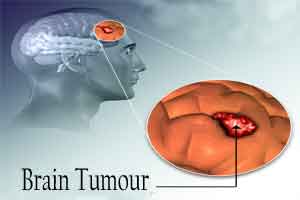- Home
- Editorial
- News
- Practice Guidelines
- Anesthesiology Guidelines
- Cancer Guidelines
- Cardiac Sciences Guidelines
- Critical Care Guidelines
- Dentistry Guidelines
- Dermatology Guidelines
- Diabetes and Endo Guidelines
- Diagnostics Guidelines
- ENT Guidelines
- Featured Practice Guidelines
- Gastroenterology Guidelines
- Geriatrics Guidelines
- Medicine Guidelines
- Nephrology Guidelines
- Neurosciences Guidelines
- Obs and Gynae Guidelines
- Ophthalmology Guidelines
- Orthopaedics Guidelines
- Paediatrics Guidelines
- Psychiatry Guidelines
- Pulmonology Guidelines
- Radiology Guidelines
- Surgery Guidelines
- Urology Guidelines
Cause of thrombosis in patients with malignant brain tumours discovered

Patients with malignant brain tumours have an increased risk of thrombosis. Up until now we did not understand the mechanisms behind this. An interdisciplinary study conducted under the direction of Julia Riedl and Cihan Ay of MedUni Vienna's Department of Medicine I and recently published in the leading journal Blood has now shown for the first time that a special protein called podoplanin is involved in the development of thromboses that form on the surface of tumour cells.
Thromboses are a common complication of cancerous diseases, which affect the blood clotting system and can activate it. The general risk of thrombosis in cancer patients is approximately 4 – 7 times higher than in people without an underlying malignant disease. Cancer patients who develop thromboses have a higher risk of mortality. A venous thromboembolism (VTE) a blocked vessel in the venous vascular system – is influenced by the type of cancer. Malignant brain tumours are amongst the types of cancer with the highest thrombosis risk and thromboses are also common in patients with pancreatic cancer and lung cancer. In the case of a malignant brain tumour, there is a 15 – 20% probability of suffering a venous thromboembolism.
Now it has been found that the protein podoplanin, which normally occurs in the lymphatic system and is important for embryonic development, for example, can be formed in the tissue of brain tumour patients. It serves to activate the blood platelets, which are an important component of the blood clotting system. For the study, which was conducted as part of the Vienna Cancer and Thrombosis Study (CATS), which has now been running for more than 10 years, tissue samples from brain tumours from 213 patients were stained using a special technique, in order to identify potential podoplanin expression. "It was found that increased podoplanin expression is a strong indicator of the occurrence of venous thromboembolisms, whereby the VTE risk of patients with malignant brain tumours was increased six-fold over a two-year observation period," said the lead investigator.
In order to understand the underlying mechanisms of increased susceptibility to thrombosis, the researchers also studied the aggregation of blood platelets. The results showed that the more platelet aggregations there were, the more podoplanin there was present in the tissue. On the other hand, fewer platelets were measured in the blood, since they had been used for podoplanin activation. By means of in vitro experiments, the researchers were able to confirm that podoplanin-positive tumour cell lines strongly activate blood platelets and cause them to aggregate.
The results of the study show that, by activating the blood platelets, podoplanin can lead to the occurrence of a venous thromboembolism. The study was therefore able to identify a possible underlying mechanism for the very first time and this could have far-reaching consequences for the future prophylaxis and treatment of thrombosis in patients with malignant brain tumours.

Disclaimer: This site is primarily intended for healthcare professionals. Any content/information on this website does not replace the advice of medical and/or health professionals and should not be construed as medical/diagnostic advice/endorsement or prescription. Use of this site is subject to our terms of use, privacy policy, advertisement policy. © 2020 Minerva Medical Treatment Pvt Ltd